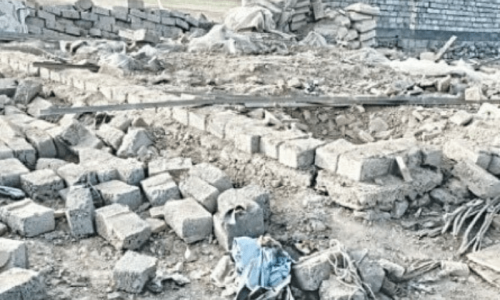The Khyber Pakhtunkhwa government took lead over the federal government and other provinces when it introduced the Whistleblowers Protection and Vigilance Bill 2015 in the provincial assembly on Oct 5. The proposed law is aimed at setting up a Whistleblower Protection and Vigilance Commission (WPVC) to encourage public interest disclosure that relates to irregular, illegal or corrupt practices and to protect persons making such disclosures from disadvantageous measures and give them reward for such disclosure.
So far there is no law available on the federal or provincial level on whistleblowers protection. The present provincial government had earlier enacted Khyber Pakhtunkhwa Right to Information Act 2013 for ensuring transparency in the functioning of government departments. In that law the government had also included a provision regarding whistleblowers.
Section 30 of the RTI Act provides that no one may be subject to any legal, administrative or employment-related sanction, regardless of any breach of a legal or employment obligation, for releasing information or wrongdoing, or which would disclose a serious threat to health, safety or the environment, as long as they acted in good faith and in reasonable belief that the information was substantially true.
However, the proposed bill is comprehensive and exclusively dealing with whistleblowers’ protection. The proposed law defines a “whistleblower” as a person or an agency, who disclose the public interest information under this law.
The proposed law provides for setting up of a WPVC comprising three commissioners to be appointed by the government for a period of three years. The bill proposes certain qualification for the commissioner, including that he or she should be a citizen of Pakistan and permanent resident of Khyber Pakhtunkhwa; is honest and a person with good character; is minimum of 45 years of age; has a Bachelor’s degree and at least 15 years experience in the field of law, or professional of high repute from civil society or has remained a public office holder for at least 20 years; is not a defaulter of government dues; etc.
The proposed commission will be empowered to initiate an inquiry on information of a whistleblower against any person, department or authority and will put forward recommendations for taking appropriate action against the concerned official if the information provided by the whistleblower proved to be correct.
The bill provides that WPVC shall ensure that no whistleblower is victimised by disadvantageous measures or otherwise merely on the ground that such whistleblower had made a public interest disclosure or rendered assistance in inquiry under this law. It is proposed that if a whistleblower is being subjected to disadvantageous measures he may file an application before the commission seeking redressal and the commission may pass an appropriate order giving direction to the authority concerned.
The proposed law also carries provisions related to rewards and penalties. It is proposed that after inquiry if it has been proved that a whistleblower has rightly disclosed the violation of public interest, he shall be rewarded 30 per cent of the recovered amount and certificate of appreciation. However, if after inquiry it surfaced that the whistleblower has lodged frivolous or mala fide complaint, he shall be liable to fine of Rs100,000.
The bill also proposes that if any person or agency, who wilfully does not comply with the directions of the commission, shall be liable to a fine which may extends up to Rs25,000 and two years imprisonment.
The enactment of this proposed law is in line with the UN Convention against Torture, which was adopted by the UN General assembly in 2003 and ratified by Pakistan on Aug 31, 2007. The convention makes it obligatory on the member states to include in its legal system measures for providing protection to the persons reporting regarding corruption.
“Each State Party shall consider incorporating into its domestic legal system appropriate measures to provide protection against any unjustified treatment for any person who reports in good faith and on reasonable grounds to the competent authorities any facts concerning offences established in accordance with this Convention,” Section 33 of the Convention states.
In South Asia, Bangladesh was the first country which had enacted a comprehensive law on whistleblowers protection in 2011 called as Public Interest Information Disclosure Act 2011. It was followed by India where the Whistleblowers Protection Act 2011 was passed by the two houses of parliament and had received the consent of the President on May 9, 2014.
In the proposed KP law there is no mention of the appellate forum where an appeal could be filed by an aggrieved person or authority. In the Indian law appeal against order of the competent authority regarding imposition of penalty could be filed before the high court concerned.
In the Indian law Section 15 provides for penalty for furnishing incomplete or incorrect or misleading comments or explanation or report to the competent authority. The authority could impose penalty of up to Rs 50,000 where incorrect or misleading information is given. Similarly, Section 16 provides for penalty for revealing identity of a complainant (whistleblower).
Legal experts believe that the law, if enacted, would be a very progressive piece of legislation for which the government should be making efforts for its proper implementation. They said that proper measures should be taken for highlighting the proposed law as this type of law would be unprecedented in the country. Moreover, after enactment of the law the government should make appointments of the commissioners on merit as the qualification given in the proposed law is very broad and could be misused.
Published in Dawn, October 12th , 2015
On a mobile phone? Get the Dawn Mobile App: Apple Store | Google Play











































